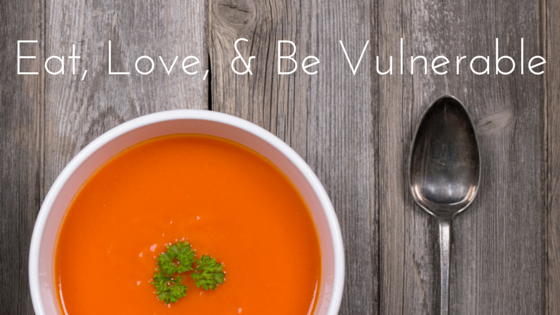Marrying internationally means that cultural dissonance is a regular part of my life experience. We don't go very long before either one of us find ourselves in a situation that is counterintuitive to the way we were raised. For example, my husband and I often get questions curious about what kind of food we eat, but in addition to eating different cuisine, we also differ in the way that we eat.
Growing up Chinese, we eat "family style," which means the dishes are set in the center of the table, and we use our chopsticks to directly pick up food from the communal dishes straight into our mouths for consumption.
As of this writing, we are visiting my American in-laws, and following their custom of eating western style, which is when you pass the dishes around, and spoon however much you'd like of each dish onto your dinner plate.
For those of you who grew up eating this way, it's probably second nature. But for me, I often cannot gauge how much food to put on my dinner plate around a western table, so that I am always either over-eating, or needing to get seconds, thirds, and fourths.
It's a minor nuisance, but can be quite frustrating to find yourself floundering at such an ordinary event such as dinner time. Those who have experience living cross culturally know it is the little things that add up to an overwhelming feeling of helplessness and loss of power. This is one of many examples of how being in a foreign element places you in a state of vulnerability.
And of course, as we live in Taiwan, my American husband is constantly encountering situations outside of his control. Everyday living brings a layer of apprehension, an uncertainty as to what is culturally appropriate, what words exactly to use, and how to interact with others with efficiency and without dissolving into yet another cultural faux pas.
It's not easy, this dance of reciprocating vulnerability. At any given time, one of us is feeling outside of our native element. And yet, the vulnerability queen, Brene Brown, says, "we cultivate love when we allow our most vulnerable and powerful selves to be deeply seen and known." There is a precious opportunity for those of us who are cross-culturally married to empathize with the vulnerability of the other, and in so doing, recognize the tremendous courage it takes to show up.
Marriage is already a vulnerable thing. Sharing the most intimate aspects of life together tugs at our pride, requiring us to shed any sort of self-protective mechanism. Add the cross-cultural element to marriage, and we are looking at vulnerability multiplied. But I suppose we can console ourselves in that when we are extra weak, we are extra strong. The constant reminders of our dependence on the other for cultural guidance is a daily exercise of our trust muscles in our partner. It's romantic even, those moments when we need to ask our spouse to translate a phrase, to hear the meaning to our own words roll off their foreign tongue in the beautiful language they effortlessly speak.
Bound to our marriage vows, we are committed to regularly step outside of our comfort zones. Which is okay because there is no adventure in comfort, no growth in status quo. Our inevitable vulnerability training in the anxieties of cross cultural living becomes our best efforts in strengthening our marriage.
So I get seconds, thirds, and fourths, and feel a bit like a dufus at the in-laws dinner table. With each serving, my vulnerability is making way for a stronger love.
This post originally published at A Life With Subtitles.
Cindy blogs at cindywords.com. You can subscribe to her newsletter and receive her FREE e-book, Outside In: Ten Christian Voices We Can't Ignore.

